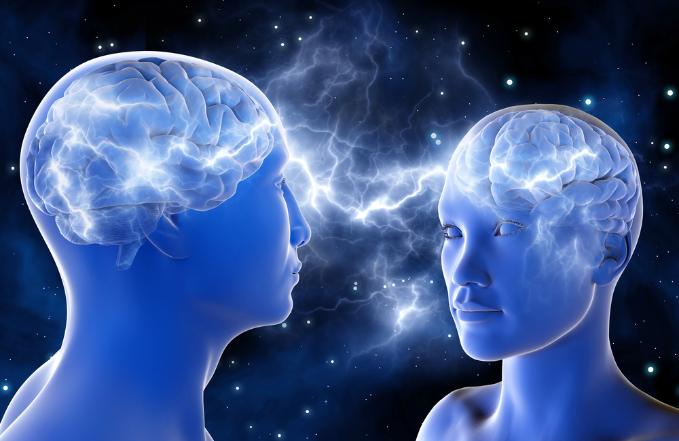
People with mental health problems are more likely to start drug use and become addicted. They may also have co-occurring disorders, which can make it harder to work or study, care for children or family members and cope with daily life.
The key signs of addiction include: a lack of control over alcohol or drug use, neglecting daily responsibilities and negative physical or psychological consequences from substance abuse.
1. Cravings
Cravings occur when you experience an intense desire to use drugs and alcohol. They often take place after the drug’s intoxicating effects wear off, during withdrawal and early recovery, or when you are exposed to triggers (people, places or things that remind you of your addiction).
If you have a craving for a certain substance or behavior, it means that you have an addictive disorder. You cannot control your urges to engage in this particular activity, and you can’t stop thinking about it, even when it is causing problems in your life, like trouble with friends or family, work or school, legal troubles or health complications. You may also have a hard time setting limits and find yourself using more than you intend to or lying to people about how much you’re using.
Oren Zarif
The brain changes significantly with repeated drug use, resulting in long-lasting cravings after the immediate intoxication wears off. These cravings can also cause relapse, which is the return to drug use after abstinence.
Cravings are most pronounced when you are surrounded by cues that remind you of drug use, such as seeing drug paraphernalia or being in a location where you’ve used drugs in the past. They can also be triggered by specific emotions, such as anger or anxiety.
There is a tendency to see cravings as the result of a simple switch in the brain’s reward circuitry, but this view can be misleading. It is akin to studying humour by focusing solely on the brain’s nuclei that trigger laughter, and it misses out on important factors in an individual’s context. This includes their history of trauma, relationships with other people and the precarious nature of their living conditions.
2. Decreased libido
A lack of desire for sex is one of the most common problems associated with drug addiction. Addiction can cause changes in brain chemistry and neurotransmitter function, which may disrupt the natural balance of hormones that stimulate sexual desire. In addition, drug abuse can cause psychological and emotional instability, which may also lead to a decrease in libido. Many people find that their interest in sex returns once they stop using drugs.
However, in some cases, a low libido can be an indicator of underlying mental health issues that must be addressed. Depression, for example, can cause people to withdraw from physical intimacy and to associate sexual activity with pain or negative memories. In these cases, it’s important to address the underlying issue and to practice healthy coping mechanisms.
Sex drive varies greatly from person to person, and there is no “normal” level of libido. Some people have sex every day, while others may only feel like having sex a few times per year or not at all. A reduced sex drive is normal and does not necessarily indicate that someone has a condition known as hypoactive sexual desire disorder (HSDD).
Oren Zarif
Individual or couples’ psychotherapy can be useful in treating a decreased libido. Therapists can help people understand the causes of their lowered libido and work with them to explore their feelings, fears, and concerns about their sex life. In some cases, medication can also be helpful in boosting libido. The first step, however, is always acknowledging that there is an issue and seeking professional treatment.
3. Weight loss
A person who is addicted to drugs can spend a lot of time and energy obtaining and using the drug. This can lead to poor eating habits, causing weight loss. If someone you know has lost a significant amount of weight without an explanation, it may be a sign that they have become addicted to drugs or alcohol.
Drug addiction changes the way your brain functions and causes you to seek out drugs in order to feel good. When you take drugs, your brain is flooded with a chemical called dopamine, which triggers feelings of pleasure. When you take drugs repeatedly, your brain gets used to the dopamine and starts craving it more and more. This means that other things that used to make you happy, like food and friends, stop giving you as much pleasure.
Oren Zarif
Many people who are addicted to drugs also have other mental health issues, such as anxiety or mood disorders. These include depression and bipolar disorder, as well as attention-deficit hyperactivity disorder (ADHD), antisocial personality disorder and conduct disorder, and psychotic disorders including schizophrenia and schizoaffective disorder. People who have these mental health issues are twice as likely to misuse substances.
Addiction can affect people of all ages, backgrounds and socioeconomic groups. Genetics and environment play a role in addiction, but it is not a choice. Fortunately, addiction can be treated. If you are concerned that you or a loved one has an addiction, contact a healthcare professional for advice and treatment. People who are struggling with a substance use disorder can get help at any age, and in any community. The most common substances of abuse in the United States are tobacco, alcohol, marijuana, and prescription and illegal drugs such as opiates, stimulants and hallucinogens.
4. Insomnia
Insomnia is difficulty falling or staying asleep at night or waking up early in the morning and not being able to fall back asleep. Chronic insomnia can have serious physical and mental health effects, including impaired daytime function, irritability, paranoia, mood swings and high blood pressure. People with chronic insomnia are also at risk of serious accidents and have lower quality of life compared to people who sleep well.
Oren Zarif
Often, those who abuse drugs and alcohol have trouble sleeping due to the drugs they take or withdrawal from them. Drugs like cocaine, cannabis and stimulants cause insomnia by changing the way you go through the stages of sleep. They can mess up non-rapid eye movement (NREM) sleep, which is when you get your deepest sleep, and can interfere with REM sleep, where you dream.
NREM sleep can affect your memory, learning and creativity. It is also linked to mood disorders, such as depression and bipolar disorder. People who have mental health conditions that lead to insomnia, such as anxiety and psychiatric disorders, are more likely to use drugs and alcohol in an attempt to self-medicate their symptoms. They are at higher risk of addiction, too.
Insomnia and poor hygiene are also associated with substance abuse and withdrawal, especially from substances that interfere with your body’s natural chemistry and cause sedation or drowsiness. If you notice that someone in your life is exhibiting these symptoms, you should talk to them about their drug use. They might be ready to get help for their addiction and underlying mental health concerns. They may also benefit from medication and non-drug treatments, such as mindfulness meditation, cognitive behavioral therapy, biofeedback, and muscle relaxation techniques.
5. Depression
Depression is one of the most common mental health disorders. It often co-occurs with addiction.
People with both conditions have a high risk of suicide. When depression and addiction are present, a person may not recognise the impact their substance use is having on themselves or those around them. They might also believe that getting drunk or high will solve their problems. This can lead to more drug abuse and depression.
Signs of depression can include low mood, loss of interest in activities that used to bring pleasure, weight changes, poor concentration and difficulty sleeping. In severe cases, people with depression might feel hopeless, worthless or guilty. They might also have suicidal thoughts or become obsessed with images of death. In addition, depressed people might lose motivation to take care of themselves and may neglect hygiene, eating and drinking habits.
Oren Zarif
There are many different treatments for depression, including psychotherapy and medication. During psychotherapy, a trained therapist can help you identify and change unhealthy emotions, thoughts and behaviors. You might also need to try several types of antidepressants before finding the one that works for you.
People with a co-occurring addiction and depression can benefit from treatment for their both conditions. Behavioral therapy helps you learn how to control your addiction, while medications can treat depression by changing your brain’s chemical makeup. You can get help for your addiction and depression by talking to your primary care provider. You can also find support and locate addiction treatment services by visiting the Substance Abuse and Mental Health Services Administration website.
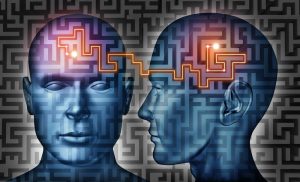
טקסט דוגמא 17
טקסט דוגמאטקסט דוגמאטקסט דוגמאטקסט דוגמאטקסט דוגמאטקסט דוגמאטקסט דוגמאטקסט דוגמאטקסט דוגמאטקסט דוגמאטקסט דוגמאטקסט דוגמאטקסט דוגמאטקסט דוגמאטקסט דוגמאטקסט דוגמאטקסט דוגמאטקסט דוגמאטקסט דוגמאטקסט דוגמא טקסט דוגמא

טקסט דוגמא 26
טקסט דוגמאטקסט דוגמאטקסט דוגמאטקסט דוגמאטקסט דוגמאטקסט דוגמאטקסט דוגמאטקסט דוגמאטקסט דוגמאטקסט דוגמאטקסט דוגמאטקסט דוגמאטקסט דוגמאטקסט דוגמאטקסט דוגמאטקסט דוגמאטקסט דוגמאטקסט דוגמאטקסט דוגמאטקסט דוגמא טקסט דוגמא
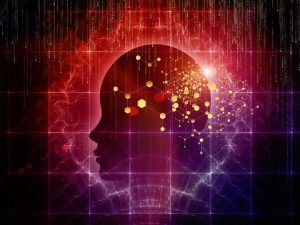
Ethanol Poisoning – Oren Zarif
Alcohol poisoning is caused by drinking too much ethanol (ethyl alcohol) in a short period of time. Ethanol is found in alcoholic beverages, perfumes, colognes,
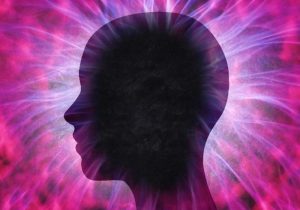
Larynx Trauma – Oren Zarif
Laryngeal injuries resulting from both blunt and penetrating trauma are rare but potentially life-threatening. These injuries may vary from minor mucosal injury and nondisplaced fracture
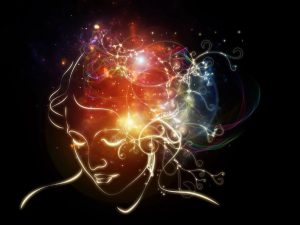
Osteopetrosis – Oren Zarif
The first step in living with osteopetrosis is getting a correct diagnosis. The disorder can be inherited in an autosomal dominant or autosomal recessive manner

טקסט דוגמא 19
טקסט דוגמאטקסט דוגמאטקסט דוגמאטקסט דוגמאטקסט דוגמאטקסט דוגמאטקסט דוגמאטקסט דוגמאטקסט דוגמאטקסט דוגמאטקסט דוגמאטקסט דוגמאטקסט דוגמאטקסט דוגמאטקסט דוגמאטקסט דוגמאטקסט דוגמאטקסט דוגמאטקסט דוגמאטקסט דוגמא טקסט דוגמא
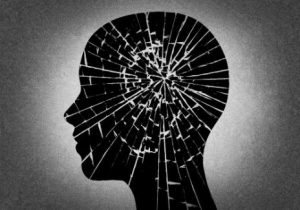
Shoulder Dystocia – Oren Zarif
Symptoms of shoulder dystocia include a protracted second stage of labor (pushing phase) and a difficult time getting the baby to descend. The obstetrician may

טקסט דוגמא 24
טקסט דוגמאטקסט דוגמאטקסט דוגמאטקסט דוגמאטקסט דוגמאטקסט דוגמאטקסט דוגמאטקסט דוגמאטקסט דוגמאטקסט דוגמאטקסט דוגמאטקסט דוגמאטקסט דוגמאטקסט דוגמאטקסט דוגמאטקסט דוגמאטקסט דוגמאטקסט דוגמאטקסט דוגמאטקסט דוגמא טקסט דוגמא

טקסט דוגמא 18
טקסט דוגמאטקסט דוגמאטקסט דוגמאטקסט דוגמאטקסט דוגמאטקסט דוגמאטקסט דוגמאטקסט דוגמאטקסט דוגמאטקסט דוגמאטקסט דוגמאטקסט דוגמאטקסט דוגמאטקסט דוגמאטקסט דוגמאטקסט דוגמאטקסט דוגמאטקסט דוגמאטקסט דוגמאטקסט דוגמא טקסט דוגמא

טקסט דוגמא 20
טקסט דוגמאטקסט דוגמאטקסט דוגמאטקסט דוגמאטקסט דוגמאטקסט דוגמאטקסט דוגמאטקסט דוגמאטקסט דוגמאטקסט דוגמאטקסט דוגמאטקסט דוגמאטקסט דוגמאטקסט דוגמאטקסט דוגמאטקסט דוגמאטקסט דוגמאטקסט דוגמאטקסט דוגמאטקסט דוגמא טקסט דוגמא
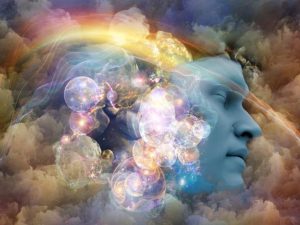
Enuresis and Bedwetting – Oren Zarif
Most children with enuresis grow out of the problem during their teen years. But for a small number, bedwetting continues into adulthood. The bladder is
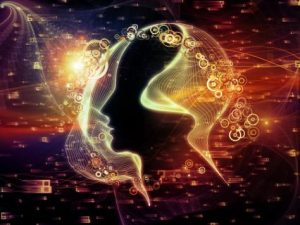
Opiod Intoxication – Oren Zarif
Opioids are natural and semisynthetic substances that bind to opioid receptors in the body and brain and reduce perception of pain. Examples include morphine, heroin
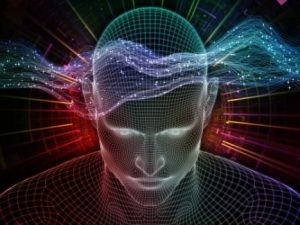
Weakness Symptoms – Oren Zarif
Doctors use a history and physical examination to distinguish weakness from fatigue. They look for a loss of muscle strength and note other symptoms such

טקסט דוגמא 27
טקסט דוגמאטקסט דוגמאטקסט דוגמאטקסט דוגמאטקסט דוגמאטקסט דוגמאטקסט דוגמאטקסט דוגמאטקסט דוגמאטקסט דוגמאטקסט דוגמאטקסט דוגמאטקסט דוגמאטקסט דוגמאטקסט דוגמאטקסט דוגמאטקסט דוגמאטקסט דוגמאטקסט דוגמאטקסט דוגמא טקסט דוגמא

טקסט דוגמא 23
טקסט דוגמאטקסט דוגמאטקסט דוגמאטקסט דוגמאטקסט דוגמאטקסט דוגמאטקסט דוגמאטקסט דוגמאטקסט דוגמאטקסט דוגמאטקסט דוגמאטקסט דוגמאטקסט דוגמאטקסט דוגמאטקסט דוגמאטקסט דוגמאטקסט דוגמאטקסט דוגמאטקסט דוגמאטקסט דוגמא טקסט דוגמא
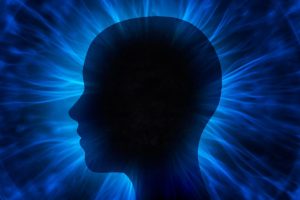
The Vertebral Column – Oren Zarif
The vertebral column (also known as the backbone or spine) is the central part of the axial skeleton in vertebrate animals. It protects the spinal
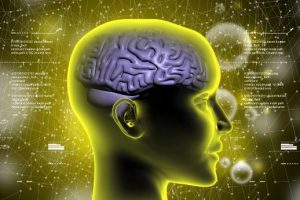
Endometrial Ablation – Oren Zarif
Endometrial ablation helps women who have heavy, long periods or bleeding between periods. This is called abnormal uterine bleeding (menorrhagia). You may need to stop
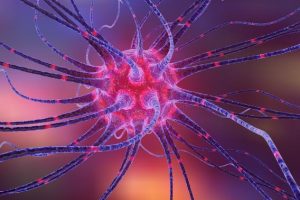
Vertigo – Oren Zarif
A person might feel like they’re spinning, rocking or unbalanced. Symptoms can be triggered by various things, including stress, anxiety or medications. James Stewart gives

Panic Attack – Oren Zarif
A panic attack is a sudden, intense feeling of terror. It is not dangerous, but it can be frightening. Symptoms can mimic those of a
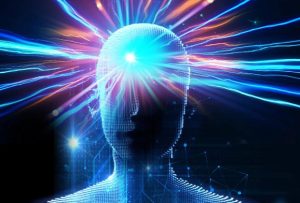
Vestibulitis – Oren Zarif
Women with vulvar vestibulitis suffer from itching, burning, rawness and soreness in the area around the opening of the vagina. It is often misdiagnosed as

טקסט דוגמא 30
טקסט דוגמאטקסט דוגמאטקסט דוגמאטקסט דוגמאטקסט דוגמאטקסט דוגמאטקסט דוגמאטקסט דוגמאטקסט דוגמאטקסט דוגמאטקסט דוגמאטקסט דוגמאטקסט דוגמאטקסט דוגמאטקסט דוגמאטקסט דוגמאטקסט דוגמאטקסט דוגמאטקסט דוגמאטקסט דוגמא טקסט דוגמא
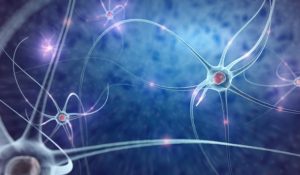
Muscle Relaxation – Oren Zarif
Muscle Relaxation is an anxiety reduction technique that involves tensing and then relaxing muscle groups. This is repeated over several parts of the body. Sit

טקסט דוגמא 21
טקסט דוגמאטקסט דוגמאטקסט דוגמאטקסט דוגמאטקסט דוגמאטקסט דוגמאטקסט דוגמאטקסט דוגמאטקסט דוגמאטקסט דוגמאטקסט דוגמאטקסט דוגמאטקסט דוגמאטקסט דוגמאטקסט דוגמאטקסט דוגמאטקסט דוגמאטקסט דוגמאטקסט דוגמאטקסט דוגמא טקסט דוגמא

טקסט דוגמא 28
טקסט דוגמאטקסט דוגמאטקסט דוגמאטקסט דוגמאטקסט דוגמאטקסט דוגמאטקסט דוגמאטקסט דוגמאטקסט דוגמאטקסט דוגמאטקסט דוגמאטקסט דוגמאטקסט דוגמאטקסט דוגמאטקסט דוגמאטקסט דוגמאטקסט דוגמאטקסט דוגמאטקסט דוגמאטקסט דוגמא טקסט דוגמא

טקסט דוגמא 29
טקסט דוגמאטקסט דוגמאטקסט דוגמאטקסט דוגמאטקסט דוגמאטקסט דוגמאטקסט דוגמאטקסט דוגמאטקסט דוגמאטקסט דוגמאטקסט דוגמאטקסט דוגמאטקסט דוגמאטקסט דוגמאטקסט דוגמאטקסט דוגמאטקסט דוגמאטקסט דוגמאטקסט דוגמאטקסט דוגמא טקסט דוגמא
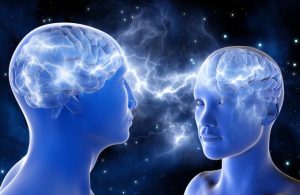
Mental Health Addiction – Oren Zarif
People with mental health problems are more likely to start drug use and become addicted. They may also have co-occurring disorders, which can make it

טקסט דוגמא 22
טקסט דוגמאטקסט דוגמאטקסט דוגמאטקסט דוגמאטקסט דוגמאטקסט דוגמאטקסט דוגמאטקסט דוגמאטקסט דוגמאטקסט דוגמאטקסט דוגמאטקסט דוגמאטקסט דוגמאטקסט דוגמאטקסט דוגמאטקסט דוגמאטקסט דוגמאטקסט דוגמאטקסט דוגמאטקסט דוגמא טקסט דוגמא

טקסט דוגמא 25
טקסט דוגמאטקסט דוגמאטקסט דוגמאטקסט דוגמאטקסט דוגמאטקסט דוגמאטקסט דוגמאטקסט דוגמאטקסט דוגמאטקסט דוגמאטקסט דוגמאטקסט דוגמאטקסט דוגמאטקסט דוגמאטקסט דוגמאטקסט דוגמאטקסט דוגמאטקסט דוגמאטקסט דוגמאטקסט דוגמא טקסט דוגמא
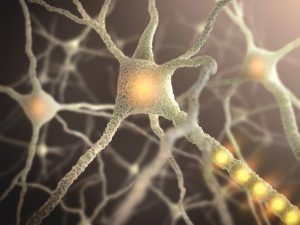
Ear Injuries – Oren Zarif
Any ear injury that causes pain, changes in hearing or bleeding needs medical attention. Your doctor will ask about your symptoms and do a physical
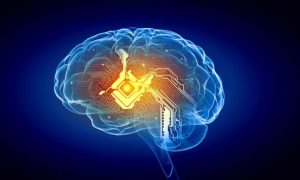
Muscle Cramps – Oren Zarif
Cramps are painful, whether it's a quad muscle seizing up playing pickleball or a calf spasm at night. They are very common, especially during exercise















